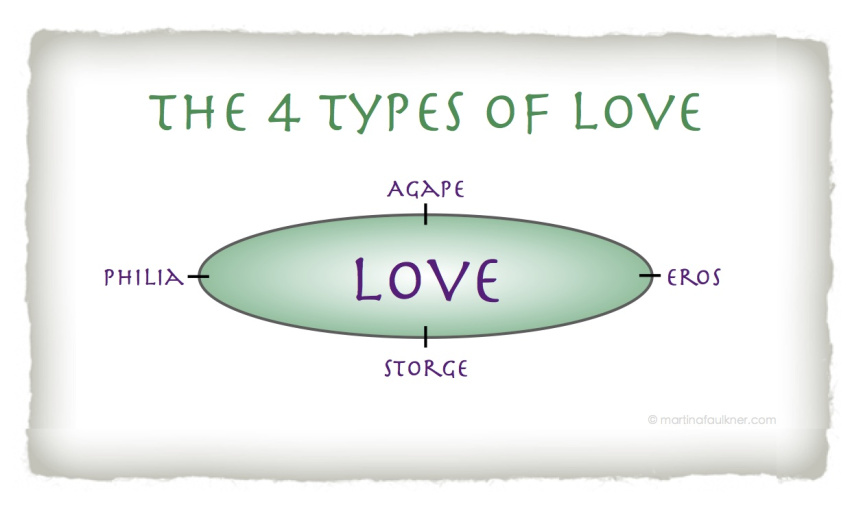
Love
Copyright © Dr. Stephen H. Dawson, DSL 2021
Published
April 8, 2021

"It's not about HOW MUCH you do, but HOW MUCH LOVE you put into what you do that counts." Mother Mary Teresa Bojaxhiu
I was fortunate to do, what I call, some really fun and cool stuff while serving in the military. I was part of two significant reorganization efforts during active duty in the United States Marine Corps. Essentially, the definition of large infantry units was being changed to become more of a rapid response force by establishing a predefined set of teams within battalions. This teaming-within-battalions concept also kept the company and platoon structures. The concept would then be duplicated among the regiments and divisions. This change brought over three years significant impacts to an organization steeped in tradition-based process. These two reorganization efforts were a direct outcome of, shall I say, a poor decision to abandon infantry best practices to appease those who were not a part of the organization. Politely stating it, those appeased had nothing to lose while those performing the new practice for appeasement had everything to lose.
I realized during my tenure in the military there are many ways to gain a preferred outcome in either small and large organizations using means other than military force. I concluded military force is best left as a last resort after all reasoning fails. Note, I did not use the term diplomacy here in the context of "an object folded in two" because using diplomacy will never change the outcome. Diplomacy without reasoning is lunacy. If there is no room for reason, then there is no likelihood of success in any engagement with people regardless of either using or not using diplomacy. Deeper still, I realized during my time in the infantry the most powerful force to accomplish the will of anyone is an intangible force. I speak of the power of love.
This week's column is a bit long. It is long because you need all of this material delivered to you in one session for me to serve you with excellence. So, I recommend you get your favorite beverage to help you enjoy the read.
I said last week we would begin this week to look at the candidates you are considering asking to join your organization. I also said this week starts the part where most leaders quit on the servant part of leading, adding I will show you this week why this is the case. Your strategic planning work is not going well for you. You realized you have a people problem, not a worker skills problem. You are wondering if there is another means to accomplish your strategic planning work beyond what you have attempted thus far. Let's take a look at love and see if it helps resolve your people problems.
Leading by serving is a formal leadership style. It is a large topic, so we need to cover it during a future discussion. Briefly, the style is practiced through the leader serving their followers by assuring their followers have all they need at all times to succeed in their followership. I can tell you with assurance this leadership style works quite well in a high majority of scenarios. Service is an act of love. Hence, forming our need to discuss how you as a leader must love your followers for them to a reasonable chance for success.
I know of four and only four definitions for the term love. Each term is in the Greek language. Do not worry if you cannot read Greek, because I cannot either. Mastering the Greek language is not necessary to understand Greek terminology. Let's step through each love definition and consider them from your position as leader of an organization set out to accomplish strategic planning.

STORGE = EMPATHY BOND
This type of love is the fondness of familiarity, family members, or people who relate in familiar ways. Granted, blood is thicker than water. However, I have friends who are not family members who are in close relationship as family to me. Valentina Romei shared survey results indicating the effects of school closures are disproportionately hurting working women. Naomi Schaefer Riley found K-12 education will never be the same in Japan after COVID-19. Robert Eldridge found this condition to be the case on the global scale. Alexandra Kelley cited the National Women's Law Center finding two out of five of the 12.2 million jobs held by women that were lost over the course of February and April 2020 have not returned to the workplace, resulting in a 33-year workforce partition low point for women. Rebecca Knight considered options when employees are unable to focus either mentally or physically. Knight recommends kindness and patience. Can either kindness or patience be demonstrated without some form of love? The answer is no. I believe we saw storge love in the Most film, did we not? It is clear the challenges of educating the next generation since last year will define many barriers organizations both are facing and will face in terms of having sufficient qualified worker staffing levels. The concepts of education, family, and worker availability each cry out for the need to demonstrate storge love to your followers.
PHILIA = FRIEND BOND
This type of love is conditional based on sharing common values, interests, or activities. If you give me some candy, then I will love you. No candy, no love. Winston Churchill delivered a speech that told the world there is a condition of being either with England or against England. The oratory, now famous, was not recorded when he delivered it originally. It was recorded later, as it was found by many listeners to be a moving speech. Things worked out well for the English. I believe we saw philia love in the speech from Churchill, did we not? How about John Kennedy's proposal and later his speech challenging the United States to go to the moon? Kennedy demonstrated his love for his country. This is a conditional form of love. If one is not on board with the go-to-the-moon project, then they are not part of the American kind of thinking from Kennedy's perspective. How about Martin Luther King? He presented several speeches that are viewed by many as valuable to humanity. History shows both he and Kennedy were both prominent and controversial leaders of their time and beyond, to say the least. Did we see philia love in the words from King? The concepts of comradery, society, and nationalism each cry out for the need to demonstrate philia love to your followers.
EROS = ROMANTIC LOVE
This type of love is both the emotional and physical parts of romance and sexuality. The artists Vince Gill and Sting are each known for simple musical arrangements presented with great musical expressiveness. They presented as a duet an original work, composed originally as a solo, about the construct of eros love. The performance occurred in an effort to connect the music styles of country and rock to see how the outcome shaped up. Note the simplicity of the music progression. It seems to help supply effectiveness to the sincerity of the message communicated in their work. I believe we saw eros love in the tune performed by Gill and Sting, did we not? The concepts of simplicity, passion, and interpersonal connectedness each cry out for the need to demonstrate eros love to your followers.
AGAPE = UNCONDITIONAL LOVE
This type of love is bigger than mankind. It is something some of us in mankind strive to define, possess, and do. KeyAnna Schmiedl, interviewed by Deborah Milstein, described building the link between learning and inclusion. "People are making the connection that diversity, equity, and inclusion are not a set of initiatives that operate in a silo. It only works when you're talking about informing the policies, practices, and procedures of what happens at work every day - and, depending on your business, how you interact with your customers, how you represent your stakeholders and suppliers, and so on." We have not yet discussed the concept of equity. We will cover this topic in a future discussion. For now, think about what you read about the life of Mother Mary Teresa Bojaxhiu pursuing both understanding and doing a type of love mankind cannot define in your consideration of equity. Mother Mary Teresa Bojaxhiu went through the stages of learning and development as she pursued diversity and inclusion. I am impressed by her work. I believe Mother Teresa was pursuing agape love, was she not? The concepts of urgency, sacrifice, and unyielding devotion each cry out for the need to demonstrate agape love to your followers.
WRAP UP
I have concluded I cannot give anything in life I do not first have in my possession. So, it makes sense for me to get what I need before I need it. If we do not have love, then how can we give love? The answer is we cannot.
My strategic partner David Daniels shared with me valuable comments about bias harming the demonstration of love. "While understanding that love needs to exist between you, the organization, and the employee, a leader needs to be mindful that everyone has biases. No one is immune. Investing the time to explore your biases will help you sift through a person who may not be the right fit versus someone who is left out due to your bias." David provided a priceless cautioning provision: know with certainty a person is qualified for a role. Again, another sound reason demonstrating why I work with him to help organizations get to where they want to go.
We covered a lot of material today. If this material is new to you, then congratulate yourself for getting through it. The pieces of these terms and concepts are crucial for you to seek out and understand as you attempt to select followers to join the organization you lead. I have shared indirectly during numerous previous articles the concept of love abounds in leaders, followers, and those who comprise an organization as they realized collective success. Remember, an organization includes your strategic partners and supply chain.
I do not know of any sane person who wants to be hated. Think about the simplicity of the preceding statement. We discussed evil last week. If evil always brings death, then it makes sense to me not having love in your organization will cause the organization to die. Meaning, not having love is evil. Do you want love acting as part of your people considerations for inclusion? Do you want a single type of love or diversify the four types of love into your diversity efforts?
Heavy concepts? I hope not. You are leading an organization. Your followers and investors are trusting you will not lead them into a proverbial ditch with your efforts as their leader. You must master these concepts to realize success in your role as leader.
Please understand we are talking much more than accomplishing either learning or development initiatives with your people at this point. We will talk about the concepts of learning and development in future discussions. Resolving your people problem does not involve adding more skills to existing organization members, as they were supposed to have the skills they needed to do their assigned work before beginning their work. There is something deeper happening here causing your strategic planning work not to be accomplished as you prefer. It is a worldview mismatch problem between leader and follower, and then between followers. Any effort involving people will go better when people are in agreement and working together. You now must use love to identify if you need to reassign some workers, all workers, or remove one or more workers from your organization. Suffice it to say, if you cannot love a follower, then they have no chance of success while following you. They may fail in their followership even after you love them, but you must love them both first and during their entire residency in your organization to lead them effectively.

A final thought. We have discussed gender along with skin color several times during consideration of our various people topics. We still need to discuss physical impairments resulting in a disability. The Americans with Disabilities Act of 1990 covers many points we need to discuss, but there are many more points well beyond what legislation either can or will achieve. We need to consider how you can love your followers who have a disability. Read how Dick Hoyt and his son Rick Hoyt used their efforts to work together in helping you gain a stronger understanding of the four types of love.
I encourage you to spend time this week reviewing the material we covered this week by matching your actions with those you love to the definitions presented in this writing. Also, step back through the previous columns to see how I presented love demonstrations by other leaders to you through my indirect writing. Whatever you do, please do not feel bad about where you stand in demonstrating love. Don Henley went through the discovery process you are going through now and wrote a pretty good tune by working with some of his close friends. "The more I know, the less I understand. All the things I thought I'd figured out, I have to learn again."
Fear not. The leadership thing gets much more simple to understand after having read today's material. Leadership is not easy, but I never said it was easy.
So, I ask you: where do you want to go? I hope your answer is to develop the plans necessary to accomplish the strategy you know you need to achieve to arrive at your desired destination. If this is the case, then let's get to work. If not, then I wish you the best of everything.
I hope we will see each other here next week. Email me if you need to talk before then.
Dr. Stephen H. Dawson, DSL
Executive Strategy Consultant
Stephen Dawson is an executive consultant of technology and business strategy, serving significant international organizations by providing leadership consulting, strategic planning, and executive communications. He has more than thirty years of service and consulting experience in delivering successful international business development and program management outcomes in the US and SE Asia. His weekly column, "Where Do You Want To Go?," appears on Thursdays.
Dr. Dawson has served in the technology, banking, and hospitality industries. He is a noted strategic planning visionary. His pursuit of music has been matched with his efforts to lead by service to followers. He holds the clear understanding a leader without followers is a person taking a long walk alone.
Stephen has lived his life in the eastern United States, visiting most of the United States and several countries. He is a graduate of the Regent University School of Business & Leadership. Contact him at service@shdawson.com.